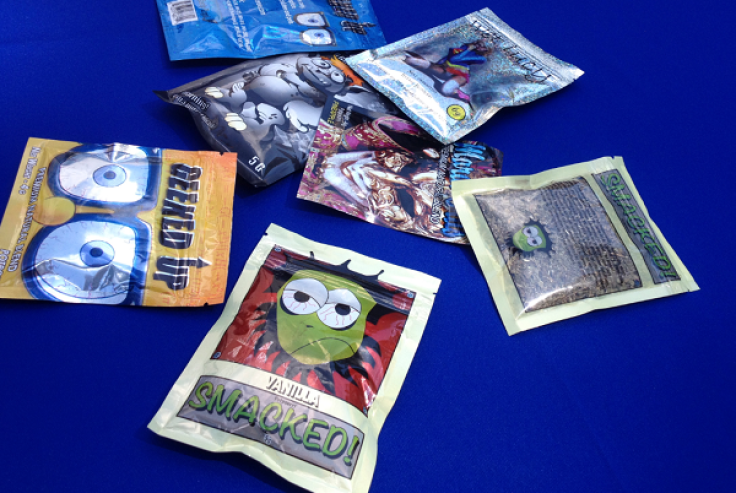Synthetic Marijuana Overdose Of More Than 150 People In A Week Overwhelms Medical Services

Heroin was momentarily trumped by synthetic marijuana as the drug causing most overdoses in Lancaster County, Pennsylvania, last week. According to C. Robert May, director of Lancaster Emergency Medical Services, a total of 158 overdose patients were involved in emergency response calls in the county between July 7 and July 14 concerning synthetic marijuana, also called K2, CNN reported. He added that the influx of overdose patients was “taxing” to local hospitals that are already “well above capacity.”
“Heroin is normally the issue but in the last week, there's been an overdose of synthetic marijuana. Over the last week, emergency services responded to 25 synthetic marijuana overdoses a day — about one an hour — in public bathrooms, parking lots, residential homes, on the street and in the parks,” May said.
Unlike Marijuana, an organic drug never known to have been the sole cause of a fatal overdose, synthetic marijuana can be dangerous and fatal.
Read: What Is Spice Or K2?
According to the National Institute on Drug Abuse (NIDA), “synthetic cannabinoids refer to a growing number of man-made mind-altering chemicals that are either sprayed on dried, shredded plant material so they can be smoked (herbal incense) or sold as liquids to be vaporized and inhaled in e-cigarettes and other devices (liquid incense).”
The chemical composition can differ wildly between different batches of synthetic marijuana — which, other than the moniker K2, is also sold under brand names including Spice, Black Mamba, Kush and Kronic.
“These products are likely to contain substances that cause dramatically different effects than the user might expect,” NIDA said. This also causes problems when it comes to treating overdose patients as the drugs are not always controlled substances or usually even recognizable by doctors.
"The emergence of synthetic drugs... changes the game in a lot of ways,” Leo Beletsky, a professor at Northeastern University who specializes in drug policy told the Daily Beast. “This is because people don’t have a good handle on what it is that they’re taking, which makes the likelihood that they’ll overdose much higher and the onset much faster.”
This aspect of the drug makes it particularly hard to regulate, as manufacturers regularly tweak the composition to bypass any banned substance, substituting them with other substances available.
Read: Synthetic Marijuana May Make You More Violent, Study Says
This isn’t the first time overdose by synthetic marijuana has been reported on such a scale. In July 2016, 33 people collapsed on the sidewalks in Brooklyn, New York, over suspected overdoses of K2.
Concerns about the rise of the use of the drug in teenagers and young adults have led to two bills being introduced in the House of Representatives in June, one to expand synthetic drug research and the other to expand the criminalization of certain synthetic substances. Laws on the ground will certainly help in curbing the rise in its use.
Speaking to Huffington Post, in 2013, special agent in charge of the Denver division of the Drug Enforcement Agency (DEA) Barbra Roach said “they’re all harmful, it’s just that some are extremely dangerous and deadly.” According to Roach, the best strategy is to just stay away from the drug, something which has been advocated even by the scientist who is often credited with inadvertently contributing to its creation.
“These things are dangerous — anybody who uses them is playing Russian roulette,” John W. Huffman told the Los Angeles Times in 2011.
© Copyright IBTimes 2024. All rights reserved.











